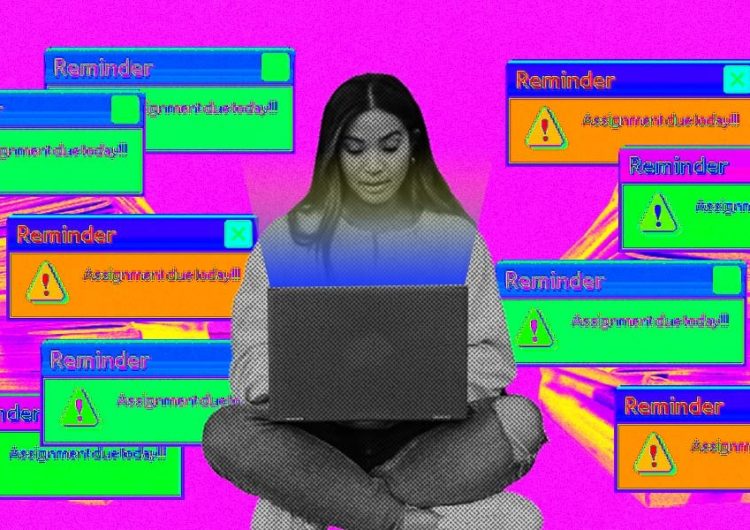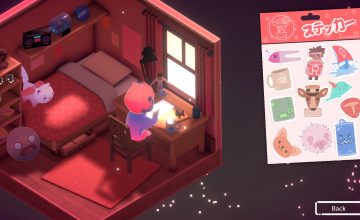It’s been more than a year, but surprise, surprise, the sitch remains the same. Every once in a while, student-led hashtags like #NoStudentLeftBehind, #SuspendOnlineClasses, #MassPromotionNow, and all its other versions find their way to the top of local trends. And yes, it did happen again.
One that made it into the recent list was #LigtasNaBalikEswela, which trended on Twitter Sunday night. This was in response to the statements made by Commission on Higher Education (CHED) chair J. Prospero De Vera III during a webinar on Friday, May 21.
“From now on, flexible learning will be the norm. There is no going back to the traditional, full-packed face-to-face classrooms,” he said at a session titled “Educating our Children in the New Normal,” where he also mentioned that this system will continue in the school year 2021 and “thereafter.”
Seeing as students have rallied against flexible learning for the past year, the news, as expected, wasn’t so well-received. Among those who chipped in the hashtag was Kabataan Partylist Representative Sarah Elago.
“More than classrooms, it’s a matter of conducive learning spaces. Not everyone shares the same healthy environment for learning continuity,” she wrote. “There’s no flexible learning without clear options for all and basic support for the marginalized.”
#LigtasNaBalikEskwela More than classrooms, it's a matter of conducive learning spaces. Not everyone shares the same healthy environment for learning continuity. There's no flexible learning without clear options for all and basic support for the marginalized.#NoStudentLeftBehind
— Sarah Elago (@sarahelago) May 23, 2021
Like Elago, several users reiterated why face-to-face classes were still needed, and why flexible learning shouldn’t be normalized in the first place, given their circumstances.
“Remote learning is not for everyone. It is not, and should never be the new normal,” student leader Gean Celestial from the University of the Philippines Los Baños said. “It is not for students without adequate resources, with poor connection, and with laboratory and field courses.”
Remote learning is not for everyone. It is not, and should never be the new normal. It is not for students without adequate resources, with poor connection, and with laboratory and field courses. There are student being left behind in this kind of setup. #NoStudentLeftBehind
— gean #DefendUP (@geanceee) May 23, 2021
While De Vera did acknowledge the “difficulties in adjusting to flexible learning” because of a “digital divide,” he went on to say that some colleges and universities have apparently been adapting well, and that students and teachers are “able to adjust to flexible learning better now than before.”
In an interview today on ANC’s “Headstart,” De Vera said that critics are “confusing the issue” and that “flexible learning” doesn’t necessarily equate to “online learning.”
“I don’t know why they still don’t understand the meaning of flexible learning, or maybe they refuse to understand the meaning of flexible learning because they want to criticize the government,” he said.
“We refuse to have a flexible form of learning as the one-all-be-all future of our country’s educational system,” says Ateneo de Davao University’s Samahan and other student groups
“When you say flexible learning, you mix and match the available options depending on the situation of students, teachers, connectivity, health situation on the ground.”
Meanwhile, university students like Renz Lacorte tweeted an alternate way to kicking face-to-face classes out of the equation.
“Instead of being negative on the resumption of f2f classes, CHED should develop a #LigtasNaBalikEskwela plan which includes the vaccination of students and teachers,” he wrote. “There must be a roadmap back to normalcy for our schools. Online setup is not everyone. It should not stay.”
Instead of being negative on the resumption of f2f classes, CHED should develop a #LigtasNaBalikEskwela plan which includes the vaccination of students and teachers. There must be a roadmap back to normalcy for our schools. Online setup is not everyone. It should not stay.
— Renz Lacorte (@imrenzlacorte) May 22, 2021
Alongside it is an online petition called Balik Silid, which calls for the inclusion of undergrads and post-grad students in the vaccination priority group B6 (a.k.a. “other remaining workforce”). Ateneo de Davao University’s student government, along with other student groups, also publicly announced their support for the petition.
[𝐍𝐚𝐭𝐢𝐨𝐧𝐚𝐥 𝐔𝐧𝐢𝐭𝐲 𝐒𝐭𝐚𝐭𝐞𝐦𝐞𝐧𝐭]
We, the undersigned student councils and organizations, lobby for #LigtasNaBalikEskwela and call the government to include Higher Education Students in the B.6. Vaccine Priority List.
Sign the petition at https://t.co/MPwBgt2Alj pic.twitter.com/XnA3AATW3M
— ADDU SAMAHAN (@addusamahan) May 23, 2021
“By giving higher education students the chance to be immunized from the novel COVID-19, we eliminate the restrictions not only on our existing academic infrastructure that will consequently guarantee the development of well-equipped, skilled workforce to facilitate the country’s post-pandemic recovery, but also on our national economy,” they wrote.
“We refuse to have a flexible form of learning as the one-all-be-all future of our country’s educational system.”
In the same interview with ANC, De Vera said that they’ll “comply with the prioritization of IATF (Inter-Agency Task Force on Emerging Infectious Diseases)” when asked about student vaccination.
But with the petition racking up 4,700+ signatures, an estimated 4.4 million kids unenrolled last year, and a new hashtag popping up on the trends every so often, it’s pretty clear that students are still waiting to be heard—and the situation shouldn’t extend to another stagnant year yet again.
Read more:
With online classes, teachers and students share the same struggle
In short film “Excuse Us,” we see the ugly reality behind online classes
Why Kabataan Partylist’s Sarah Elago defends the #LeaveNoStudentBehind movement
Art by Jan Cardasto

























Comments